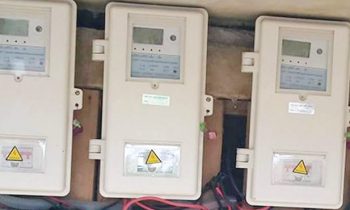Going by the level of infrastructure deficiency that has made Nigeria not realize its gas potential, the country would need between $10- $15 billion in the next two to three years to ramp up existing gas infrastructure.
Within the next three to four years there will likely be in-country gas infrastructure to raise supply, especially domestically. Mele Kyari, the Group Chief Executive Officer of the Nigerian National Petroleum Company Limited (NNPC), made these revelations at the 2024 edition of CERAWeek, an oil and gas event in Houston, the United States, organised by S&P Global
He, however, told participants at the event that the main focus of his organization, the NNPC, at the moment, is building capacity to deliver gas into the domestic market, reiterating that Nigeria remains a gas country with associated oil rather than the other way round.
The NNPC boss stated that there is now a clear opportunity that gas has on Sunday, which wasn’t there 10 years ago, explaining that the NNPC and its partners are building some trunk lines that will supply gas within the network
On the conversations around energy transition, he noted that the country takes the issue of energy availability very seriously, as well as the cheapest route to explore it.
“Within the next three years, we will need between $10 billion to $15 billion in two to three years. That should cover the immediate gap. And of course, looking beyond providing gas in the domestic market, which is to see how relationships and partnerships can create gas for export.”
“And of course, when you look at that, and then probably you see another incremental $10 billion to $12 billion which will create the opportunity for growth,” he stated.
Kyari also disclosed that there is an ongoing engagement, which has reached a very advanced stage to create a pipeline that can pass through 13 African countries into Morocco and then to Europe, estimated at $25 billion.
He mentioned the ongoing construction of the NLNG Train 7, expressing the hope that it will likely double Nigeria’s current capacity in the liquefied natural gas space when completed.
“Also, we are working on two other projects.
One is the fixed LNG project and we have reached an advanced stage of commitment on this, it will enable us to bring back another 10 million tonnes facility in the country, and several other floating LNG projects.
“But obviously, we have a line of sight around at least three to four LNG projects. We are also engaging our partners to see how we can add another train on the LNG making it eight. We see huge opportunities,” he pointed out.
Kyari further called for support from other countries to nations in sub-Saharan Africa, to close the energy availability gap.
Nigeria has over 208 Trillion Cubic Feet (TCF) of proven gas reserves and about 600 TCF in potential reserves, but can hardly get the resource out of the ground due to lack of infrastructure and the much-needed investment in the sector.





